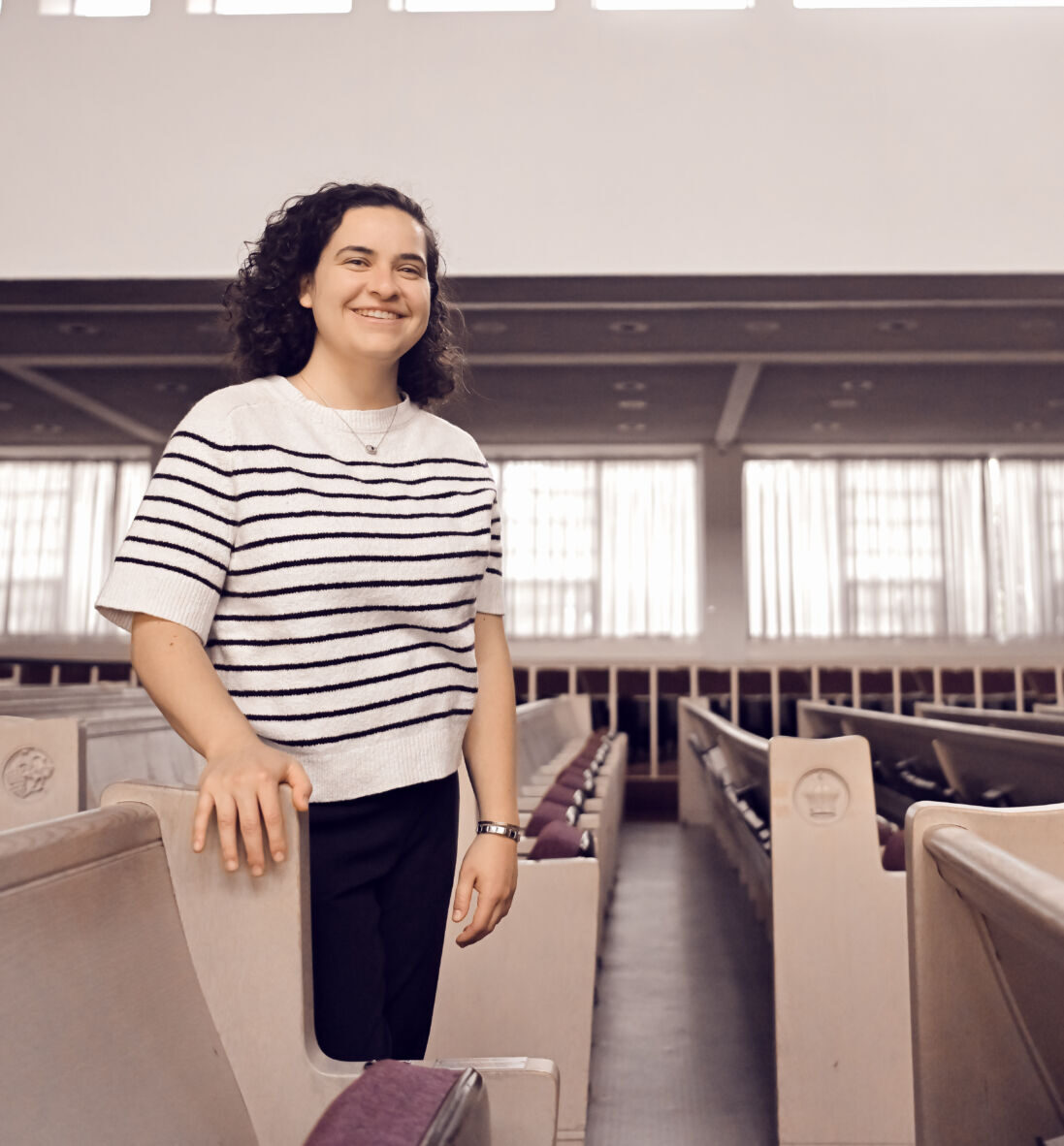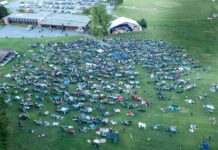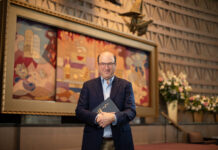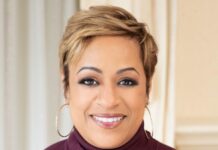
Rabbi Eden Glaser has just started her rabbinical career at Baltimore Hebrew Congregation after recently becoming a graduate of Hebrew Union College-Jewish Institute of Religion.
Glaser started with the congregation on July 1 and has been working on learning as much as she can about the community.
Glaser said she hopes to return the love of learning, space and tradition the community has shown her and be a mirror to the community.
Glaser lives in Owings Mills.
Tell me about your background.
I grew up in Los Angeles, particularly in the San Fernando Valley. I grew up going to a Reform congregation called Temple Ahavat Shalom, and I spent most of my formative years going to summer camp at Camp Alonim. I went from high school in Los Angeles to Smith College in Massachusetts.
Then I went straight from Smith College to Hebrew Union College, which is a Reform seminary, and was there for five years. My first year was on Zoom in 2020 during the pandemic, and this is my first full-time role as a rabbi.
Was there a moment you knew you wanted to be a rabbi?
I don’t think there was any one particular moment in my childhood where I knew I wanted to be a rabbi. But, I was always interested in learning and interested in religious school.
Your first year of rabbinical school was online during the pandemic. What was that like?
In many ways, it was really challenging. The first year of rabbinical school at the Hebrew Union College is usually on the Jerusalem campus. So, that had its own challenges, but it was also really nice to have community during that year of the pandemic, even though it was a virtual community of other future and now current clergy to study together, learn together and try to have some social events together.
And it was a hard time, not just with COVID, but personally. It was really nice to grow community. It was really special, a couple of years later, to spend a summer in Israel with those same classmates who went to campuses of the [rabbinical] college throughout the United States, and to have a chance to have a reunion and study all together in Israel.
What has the transition to your new position been like?
It’s been really beautiful and really challenging not only moving to my first full-time rabbi position, but also my first full-time position anywhere at all, because I’ve mostly been a student. I feel so deeply supported by everyone at Baltimore Hebrew Congregation — the community, the congregation and all its constituents welcomed me. People are checking on me, and I feel really supported in the professional transition.
What drew you to become a rabbi?
What drew me to the rabbinate is the ability to be a lifelong learner and continue my path of lifelong education, and then bringing everything I learned to the best of my ability into the present day, in the present moment, and sharing with other people. That certainly, at this moment, remains my favorite part.
I love spending time reading and doing research so that I can write divrei Torah and bulletin articles and things like that. I really love and relish the ability to learn and then take what I learned and bring it to the present moment.
How do you think BHC will help you grow as a rabbi?
One of the biggest things I was looking for in my first job was being on a professional team of people that I could sit at the feet of and learn from. And I’m super lucky that I have a team that is beyond what I could have ever imagined at Baltimore Hebrew.
So, just learning from people, whether they’ve been here longer than I — longer than I’ve been alive or started the week after me — there are so many people keeping the wheels turning of the entire synagogue. Learning with and from them is what I want to continue to do, and I view everyone as a mentor.
What do you hope to bring to the BHC community as a new rabbi at the synagogue?
I just hope that I can bring the same amount of attentiveness, love of learning, love of space and love of tradition that has been shown [to me] and bring it back and hold a mirror up to the community. I’ve been really grateful for how often I hear that I fit right in. I do feel that I fit into the community. [I want to] show that everything that they may see in me as a rabbi, I see in them as congregants.




